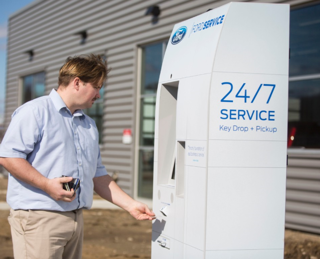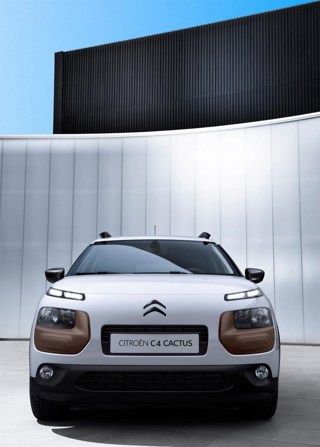It’s a huge market – almost 40% (12 million) of the more than 30 million cars in the UK are diesels. But could we now be seeing the end of the road for this fuel type?
The government is committed to improving air quality – an estimated 40,000 people die prematurely each year in the UK from pollution.
Diesel engines are now considered a significant contributor due to the negative effects of Nitrogen Dioxide emissions.
On the positive side, however, diesels are generally the most fuel efficient and emit less CO2 – something the government also wants to reduce in addressing climate change.
But what’s round the corner? Well, the figures are ominous.
The total of new car registrations in February this year was 83,115 units. Registrations of diesel cars fell by 9.2%, while demand for petrol cars rose again by 5.8%. And alternative fuel vehicles continued their positive trend with a dramatic increase of 48.9%.
Latest consumer attitudinal research of car purchases from the AA also shows that diesel is declining as a fuel choice and the number of ‘don’t knows’ is going up.
 Source: AA Populus Car Purchase data
Source: AA Populus Car Purchase data
However, the Chancellor again froze fuel duty in his Spring Budget – the seventh year running.
Rumours of a diesel scrappage scheme, which would probably target areas with the highest levels of air pollution such as London, were not confirmed. But he did indicate that he would “explore the appropriate tax treatment” for diesels ahead of the Autumn Statement.
If this means raising taxes, then for many, that could toll diesel's death knell.
Diesels, particularly pre-2015 models, are increasingly likely to face charges or be restricted from entering major cities.
We'll have to formally wait until November to hear the fine detail, although I suspect there will be numerous leaks (no pun intended) along the way.
It’s also worth noting that the commercial vehicle fleet is still mostly diesel-powered so any rise in fuel duty would be a double whammy for those small business people hit by the recent budget changes to National Insurance Contributions.
Next month (April), the government – under a high court order – is expected to publish a draft of its revised, more ambitious Air Quality Plan including potentially new charges being proposed on polluting vehicles.
Interestingly though, we know that, overall, cars only contribute around 10% of the pollution – other causes include diesel trucks, buses, taxis, trains, domestic heating and industrial emissions.
Modern diesel cars are also now pretty clean in official tests although they emit around 10 times more nitrogen oxides on the road than an equivalent petrol car, according to the International Council on Clean Transportation (ICCT).
For dealers, it’s still too early to decide categorically what business strategy to take.
Consumers have numerous choices. If they cover a high mileage and the bulk of their driving’s on motorways, then a new Euro 6 diesel (with a Diesel Particulate Filter) is still a good option because the increased economy is more likely to overcome the higher fuel cost.
But if their driving is predominantly short journeys on local roads, then petrol will be more suitable because DPFs need regular long runs, some at high engine speeds, to clean (regenerate) the filter.
If customers live and drive mainly in a large town or city, then an Electric Vehicle (EV), or Plug-in Hybrid Vehicle (PHEV) would be the better choice.
Outside of a town or city the suitability of an EV or PHEV will depend on how far they have to drive and access to recharging points.
Newer EVs have a greater range thanks to advancing battery technology while the number of public charging points is rapidly growing – so their suitability for longer journeys is improving all the time.
In sum, diesel emissions are an urban rather than more general issue and for many drivers, diesel will continue to be the best choice.
The transport secretary Chris Grayling recently recognised the importance of finding the right way to “migrate the nature of the cars on our roads to a point where they cause much less of a pollution problem than they do at the moment”.
But significantly, he said think carefully – he didn’t say don’t buy.
Author: Simon Benson, director at AA Vehicle Inspections explores the issue



















James - 20/03/2017 21:52
Fair to say that previous incumbents of parliament have been obsessed with reducing CO2 levels and there is still a significant levy in place for manufacturers if they do not achieve the lower CO2 emission levels. We have over 12M diesels on the road as a consequence and it is still beneficial to run a diesel as a company car despite the +3% added to BIK. Ultimately, NOx will be targeted but you have to have sympathy with the manufacturers who have invested significant amounts of money in clean engines both from a CO2 and NOx perspective. To ignore a modern diesel is missing the point and the noise that we hear about passenger car diesel damage is completely overstated. Yes, old diesel technology is poor but the current crop of efficient engines is actually tacking the issue of poor air quality. More emphasis needs to be put upon hybrid technology both in public transport and passenger cars within clear air zones and some form of understanding that new diesels are so much better than old ones. Currently there are so many ill informed and mis-quoted headlines hitting the press that consumers may end up making poor environmental decisions from a CO2 perspective. Look at providing a credible train service that is affordable, reliable and pleasurable and get a hybrid or electric taxi to get you to your city destination rather than the farcical, overcramped, seven coaches of empty first class coaches that we have to contend with. People who travel around the country need a solution that works both economically and ecologically. Modern diesels go a long way towards this and the manufacturers that have invested to reduce both CO2 and NOx should be applauded rather than vilified.